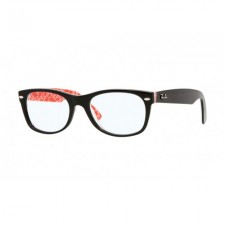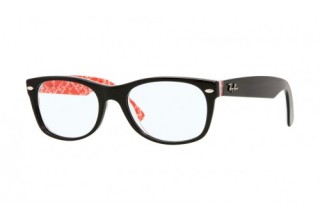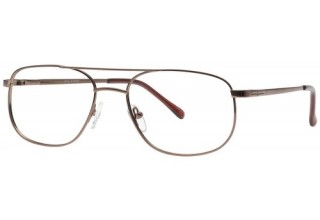Myeyewear2go.com: Glass Eyeglass Lenses

MIDDLESEX, N.J., September 4, 2017 (Newswire.com) - With all of the advances in technology in recent years, you have plenty of options to choose from when you're ready to buy new eyeglasses. Many people are opting for polycarbonate or plastic lenses instead of traditional glass — and in some cases, those lenses offer immense benefits. Many optometrists and eyeglass makers have discovered that glass lenses have almost completely disappeared, with many people opting for the lighter, more shatter-resistant plastic options. Choosing glass lenses for your eyeglasses, however, still carries several benefits that should be considered before you decide on the final material for your eyeglass lenses. Make sure that you're familiar with all the ways that glass lenses can benefit your eyes — including a lighter pressure on your budget, better scratch resistance and other durability over time, and even a higher level of visual clarity that makes it easier for you to see through your lenses.
1. Glass lenses provide higher levels of scratch resistance. Scratches on your eyeglasses can substantially impact your ability to see the world around you — in a negative way. Whether you're simply hard on your lenses, regularly failing to clean them correctly, or you work in a profession where scratches are common, it's important to choose a lens material that's difficult to scratch. Glass lenses offer that durability, ensuring that you won't be back at the optometrist, asking for a new copy of your prescription, soon after ordering new lenses. This is particularly beneficial for a number of cases:
- Individuals who work in an environment where there is high dust or other particulate matter in the air, leading to increased dust and dirt on their eyeglasses.
- Individuals who often work outdoors, especially if they work around dust and dirt.
- Individuals who forget to take the time to clean their glasses properly, often leading to scratches on the lenses.
- Individuals who struggle to keep their glasses clean in general.
2. Glass lenses are often less expensive than plastic lenses. Let's face it: glasses are expensive. Some people simply struggle with the cost of glasses in general, finding glass lenses a welcome relief for their budget. In other cases, you may need to choose less expensive options for your lenses for other reasons: you're dealing with a young adult or other individual whose vision is still changing rapidly, necessitating replacement lenses on a regular basis; you need more than one pair of glasses or sunglasses; or you frequently lose or break your lenses, requiring frequent replacement. Glass lenses might not entirely erase the cost of glasses, but they can reduce the expense significantly.
3. Glass lenses are frequently thinner than plastic lenses. This is especially useful for individuals with very poor vision, for whom every millimeter counts, or individuals who are very concerned with the aesthetic appearance of their glasses. Thicker plastic lenses can cause a more pronounced distortion when looking directly at the person wearing glasses or make their eyes appear smaller than thinner glass lenses. Glass's natural refractive index is higher than the plastics commonly used in eyeglasses, which means that it is better positioned to create thin, attractive lenses.
4. Natural glass creates a smoother appearance for bifocals and trifocals. Since glass can easily be melted together, even if it incorporates more than one type of material, it's easier to create bifocals and trifocals without that telltale line when they're made out of glass. This means both a cleaner appearance for individuals looking at the glasses from the outside and a cleaner field of vision for the individual wearing the glasses. It also helps remove the dispersion effect around the edges of a bifocal or trifocal insert, making it easier for most people to see clearly through their glasses lenses.
5. Glass may offer clearer vision. Plastic is often slightly tinted, and it's not quite as clear as glass — making it more difficult to see through plastic lenses. Many people will find that when they look through glass lenses, their vision is sharper and clearer, offering them a better overall visual experience that is well worth the extra weight of the glass lenses. In fact, glass is still considered by most professionals to offer the clearest, crispest visual experience. For this reason, it's often used in other tools that also require a high-quality visual experience: camera lenses, binoculars, microscopes and more. For individuals in particularly visually demanding fields who need that crisp, high-quality vision that only glass can offer, glass lenses are the obvious choice. While most people find that they see perfectly well through polycarbonate lenses, many individuals are highly impressed by the difference between their visual clarity when they're able to wear glass lenses. If you frequently do detail work or need to look at things a long distance away, glass lenses will make that easier.
6. Glass is more durable throughout temperature differences. You don't always wear your glasses all day. Sometimes, you might leave them sitting on the seat of your car while you wear your sunglasses outside, or you might leave your glasses sitting while you take part in a sport or other activity. If this is common for you, you might find glass lenses offer a higher level of durability that will better fit your needs. Plastic lenses have higher levels of expansion when they're sitting in the heat, which can both lead to visual distortion over time and create problems with the fit of your glasses. Glass lenses, on the other hand, will hold its shape through higher temperatures more easily.
The greatest benefit to glass lenses is their durability: they're tough enough to handle high heat and more scratch resistant than their plastic counterparts. People who wear their glasses every day, however, will also appreciate the greater visual clarity that is offered by glass lenses — not to mention the thinner appearance, which looks better on many faces. In short, glass lenses offer a wide range of benefits that continue to make them the obvious choice for many individuals. If you're still on the fence about the material you want to use for the lenses, make sure you carefully consider these advantages before ruling out glass as a possibility. You might even decide that glass is the best material for your needs!
The Downsides of Glass Lenses
For all their benefits, glass eyeglass lenses are not without their downsides — and it's important to consider them before making a glasses purchase. These downsides include:
- More brittle lenses, which means that they can break more easily.
- Heavier weight — a serious issue, particularly for individuals with poor vision.
- Fewer customization options: plastic lenses are available in a wider variety of colors.
- Fewer options for visual customization, especially among those who have difficult or complicated vision issues.
- Lower UV blocking capability than plastic lenses, which often do a better job of protecting eyes from the sun.
- Increased glare, especially since anti-reflective coating doesn't work as well on glass lenses.
In general, plastic glasses are recommended for sports and children's glasses. For adults who don't engage in sports on a regular basis, however, glass lenses are often far preferable both for the sake of appearance and for the sake of visibility. If you want to learn more about the benefits of glass eyeglass lenses or you have more questions about the differences between glass and plastic lenses, contact us today to learn more.
Source: Myeyewear2go

